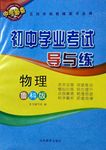题目内容
From old times, India has been a good friend of China. The two big Asian countries now work more closely on border problems, trade (贸易) and IT.
India is an interesting and mysterious( 神秘的)country with a long history. Around 2,000 BC, Indian civilization (文明) was born. It is one of the four oldest civilizations in the world.India is also the birthplace of Buddhism (佛教).A famous Chinese novel, "A Journey to the West", is about a Chinese monk (和尚) who tried very hard to learn about Buddhism from India.
The book comes from a true story. Xuanzang, a Buddhist monk was sent to India by the King of the Tang Dynasty.After many years, he brought back lots of Buddhist books. The name "India" was first used by Xuanzang in his work.
Today, religion(宗教) is still an important part of Indian culture. There are many religions there. Most Indian people believe in Hinduism (印度教).In India, cows are very special animals because Hinduism says they are holy (神圣的). So Indians don't sell or eat beef.Like China,
India is a developing country with a large population(人口). It has about 1.03 billion people compared to China's 1.3 billion. More than two thirds of Indians still live a poor life in the countryside.
India has no birth control so its population is growing fast. By 2030, India could even have more people than China.
Hindi (印地语) is the mother tongue of Indian people. But Britain took India in 1757 and stayed there until 1947. Because of this, English slowly became the other official language.
小题1:Why don't Indians sell or eat beef?
小题2:What is/are the official language(s) of India?
India is an interesting and mysterious( 神秘的)country with a long history. Around 2,000 BC, Indian civilization (文明) was born. It is one of the four oldest civilizations in the world.India is also the birthplace of Buddhism (佛教).A famous Chinese novel, "A Journey to the West", is about a Chinese monk (和尚) who tried very hard to learn about Buddhism from India.
The book comes from a true story. Xuanzang, a Buddhist monk was sent to India by the King of the Tang Dynasty.After many years, he brought back lots of Buddhist books. The name "India" was first used by Xuanzang in his work.
Today, religion(宗教) is still an important part of Indian culture. There are many religions there. Most Indian people believe in Hinduism (印度教).In India, cows are very special animals because Hinduism says they are holy (神圣的). So Indians don't sell or eat beef.Like China,
India is a developing country with a large population(人口). It has about 1.03 billion people compared to China's 1.3 billion. More than two thirds of Indians still live a poor life in the countryside.
India has no birth control so its population is growing fast. By 2030, India could even have more people than China.
Hindi (印地语) is the mother tongue of Indian people. But Britain took India in 1757 and stayed there until 1947. Because of this, English slowly became the other official language.
小题1:Why don't Indians sell or eat beef?
| A.Because they don't like it. |
| B.Because they are afraid of getting ill. |
| C.Because they see cows as holy animals. |
| D.Because beef is very expensive. |
| A.Hindi | B.English |
| C.Both of the above | D.None of the above |
小题1:C
小题2:C
小题1:细节理解题,根据文中语句“In India, cows are very special animals because Hinduism says they are holy (神圣的). So Indians don't sell or eat beef.Like China,
”理解可知。
小题2:细节理解题,根据文中语句“Hindi (印地语) is the mother tongue of Indian people. But Britain took India in 1757 and stayed there until 1947. Because of this, English slowly became the other official language.”理解可知。

练习册系列答案
 七星图书口算速算天天练系列答案
七星图书口算速算天天练系列答案 初中学业考试导与练系列答案
初中学业考试导与练系列答案
相关题目

